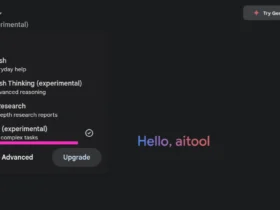The internet has changed how we find products and talk to brands. This makes online reputation management very important!
As we explore the digital world, we see how tech changes online reputation management. We recommend trying the free reputation report from Rep Radar by ReputationReturn.com to see how you’re doing online.

Machine learning AI is changing how businesses handle their online image. With this tech, companies can get to know their customers better. This helps them boost their online reputation.
Key Takeaways
- Understanding the importance of online reputation management in the digital age.
- The role of machine learning AI in enhancing online reputation.
- How businesses can leverage technology to improve their online presence.
- The benefits of using tools like Rep Radar for reputation monitoring.
- Best practices for managing online reputation effectively.
Understanding the Fundamentals of Machine Learning in Reputation Analysis
Machine learning has changed how we handle online reputations. It’s now a key tool in our digital world. We need to know about machine learning and how it helps in reputation analysis.
What is Machine Learning and How Does it Work?
Machine learning is a part of artificial intelligence. It trains algorithms to learn from data and make predictions. In reputation analysis, it looks at lots of data from social media and news to find trends.
Key aspects of machine learning in reputation analysis include:
- Data collection from diverse online sources
- Pattern recognition and trend analysis
- Sentiment analysis to gauge public opinion
| Machine Learning Application | Description | Benefit to Reputation Analysis |
|---|---|---|
| Sentiment Analysis | Analyzing text to determine positive, negative, or neutral sentiment | Provides real-time insights into public opinion |
| Pattern Recognition | Identifying trends and anomalies in large datasets | Helps in predicting potential reputation threats |
| Predictive Analytics | Using historical data to forecast future events or trends | Enables proactive reputation management strategies |
The Intersection of AI and Reputation Management
AI is powerful in managing online reputations. It uses tools like sentiment analysis and chatbots. These tools help businesses understand their online image and make smart decisions.
AI tools analyze lots of data quickly. They show how people feel about a brand or person in real time. This helps businesses respond fast to feedback, showing they care about their customers.
The integration of AI and reputation management offers several benefits, including:
- Enhanced accuracy in sentiment detection
- Scalability across multiple platforms
- Predictive capabilities for identifying potential reputation threats
The Evolution of Online Reputation Management
Online reputation management has changed a lot, thanks to machine learning. It now helps businesses actively shape and manage their online image. This new way is much different from old methods, being more flexible and quick to respond.
Businesses need to keep up with the fast-changing online world. With more people checking out reviews and social media before buying, companies must update their strategies. They need to manage their online image well.
Traditional Reputation Management Approaches
Old methods of reputation management were mostly reactive. This meant dealing with negative reviews and trying to lessen the harm from bad publicity. These methods are still used but are not as effective because they don’t solve the real problems.
Now, online reputation management is more proactive. It uses machine learning AI to watch and understand online feelings in real-time. This lets businesses spot and fix reputation problems quickly.
The Digital Transformation of Reputation Monitoring
The way we monitor reputation has changed a lot, thanks to machine learning and natural language processing. These tools help businesses look at lots of online data. They find patterns and trends that help shape their reputation strategies.
By using these tools, companies can really understand their online image. They can make smart choices to improve their reputation and earn customer trust. As the online world keeps changing, managing online reputation will become even more crucial.
How Machine Learning Transforms Reputation Monitoring
Machine learning AI is changing how we watch reputation. It offers predictive reputation analysis and quick insights. It looks at lots of data to find patterns and trends that might affect a brand’s image. This helps businesses quickly react to changes in how people see them, improving their online image.
Thanks to machine learning, how companies watch their reputation is changing a lot. AI tools can understand digital feelings in real-time. This gives companies useful info on what people think.
Automated Sentiment Analysis
Automated sentiment analysis is key in watching reputation. It lets businesses see what people really think about them. With natural language processing (NLP) and machine learning, companies can check out what customers say online. For example, a study in the Journal of Social Media Studies shows how NLP works well in this area.
Pattern Recognition in Consumer Feedback
Machine learning finds patterns in what customers say. This helps businesses know where they can get better and what might hurt their image. By looking at data from different places, companies can really get to know what their customers want and like. This helps them make better choices and make customers happier.
Real-time Monitoring Capabilities
Machine learning lets businesses keep up with how people see them right away. By checking data as it comes in, companies can dodge problems before they get big. This quick action is key in today’s fast digital world.
In short, adding machine learning to reputation watching has changed how companies deal with online feedback. With machine learning AI and predictive reputation analysis, companies can better manage their online image and keep up with the competition.
Key Machine Learning Algorithms Used in Reputation Management
Advanced machine learning is key for managing online reputations. It helps us understand what customers think and what’s happening in the market.
Online reputation management needs smart algorithms. These tools help businesses sort through lots of data, find patterns, and make smart choices.
Natural Language Processing (NLP)
Natural Language Processing (NLP) algorithms look through lots of text to find what people are feeling. They check out what customers say online to see how they feel about a brand.
NLP can tell if feedback is good, bad, or somewhere in between. This helps businesses know how to respond and keep their reputation strong.
Predictive Analytics Models
Predictive analytics models are also important for managing reputation. They use past data and current trends to guess what might happen next.
These models help businesses see what might threaten their reputation. This way, they can get ready and protect their online image.
| Algorithm | Function | Benefit |
|---|---|---|
| NLP | Sentiment Analysis | Understand customer feedback |
| Predictive Analytics | Trend Forecasting | Anticipate market shifts |
| Deep Learning | Complex Pattern Recognition | Enhanced accuracy in reputation analysis |
Deep Learning Applications
Deep learning makes reputation management even better. It finds complex patterns in big data. This makes sentiment analysis and predictions more accurate.
“The integration of deep learning into reputation management systems represents a significant advancement in the field, enabling more precise and effective management of online reputations.”
Using these machine learning tools, businesses can really improve how they manage their online image. As tech gets better, we’ll see even more advanced tools for managing online reputations.
Machine Learning Reputation Systems: Current Applications
Machine learning has changed how businesses keep an eye on their online image. It uses smart algorithms and AI to sift through lots of data. This helps companies understand what people think of them online.
Social Media Monitoring Tools
AI tools for social media keep an eye on what people say about brands in real-time. They help companies answer customer feedback fast. This makes their online image better.
Review Analysis Platforms
Platforms for review analysis use machine learning to look at what customers say on different sites. They give businesses a big picture of what customers like and don’t like. This info is key for making things better.
Brand Mention Tracking Systems
Systems for tracking brand mentions use machine learning to find when a brand is talked about online. They send alerts right away. This lets businesses keep up with their online image.
| Application | Description | Benefit |
|---|---|---|
| Social Media Monitoring | Tracks brand mentions and sentiment on social media | Real-time customer feedback response |
| Review Analysis | Analyzes customer reviews across multiple platforms | Insights into customer preferences and concerns |
| Brand Mention Tracking | Monitors the web for brand mentions | Instant alerts for timely reputation management |
Benefits of AI-Powered Reputation Management
AI has changed how businesses watch and keep their online image. It uses machine learning AI to look at lots of data. This helps companies understand what people think and do. They can then make smart choices to keep their brand safe.
We’ll look at the main benefits of AI in reputation management. These include better feeling detection, working well on many platforms, and spotting threats early.
Enhanced Accuracy in Sentiment Detection
AI is great at finding how people feel online. It uses natural language processing (NLP) and machine learning algorithms. This lets businesses really get what customers are saying. They can then fix things and make their customers happier.

Scalability Across Multiple Platforms
AI systems can watch many places online at once. This is key in today’s world. A bad review can quickly hurt a company’s image. With machine learning AI, companies can quickly respond to problems.
Some important features of AI systems include:
- Watching many places online
- Alerts that happen right away
- Quickly figuring out how people feel
Predictive Capabilities for Reputation Threats
AI can also predict when problems might happen. It looks at past data and how people act. This lets companies fix issues before they start.
For example, a company can use online reputation management systems to find and fix problems early. This keeps their online image strong.
Rep Radar: Leveraging Machine Learning for Comprehensive Reputation Analysis
Rep Radar uses machine learning to help businesses check and boost their online image. This tool, from ReputationReturn.com, keeps businesses ahead by tracking customer feedback and social media. It uses smart algorithms to analyze reviews and mentions.
Features of Rep Radar by ReputationReturn.com
Rep Radar has many features that make it crucial for businesses. Some of its main features are:
- Advanced Sentiment Analysis: It uses machine learning to understand the feelings behind customer feedback.
- Comprehensive Monitoring: It watches mentions on various platforms, like social media and review sites.
- Real-time Alerts: It sends businesses updates on big changes in their online image.
- Detailed Reporting: It gives deep insights into a business’s online presence.
How to Use the Free Reputation Report
Rep Radar by ReputationReturn.com offers a free report for businesses. To get it, just visit ReputationReturn.com, enter your business info, and get a detailed analysis. This report is great for businesses wanting to know their online image and find ways to get better.
Try the free reputation report from Rep Radar by ReputationReturn.com. See how machine learning can help with reputation analysis.
Implementing Machine Learning in Your Reputation Strategy
Machine learning plays a big role in managing online reputation. It helps businesses keep an eye on, analyze, and boost their online image. Understanding how to use machine learning in reputation management is key in today’s digital world.
Assessing Your Reputation Management Needs
Before using machine learning, we need to know what we need. We must spot weak spots in our online presence, know our audience, and set goals to measure success. This way, we can use machine learning tools effectively to solve our problems.
Selecting the Right ML-Powered Tools
Choosing the right machine learning tools can be tough. We need to look at how well they analyze feelings, spot trends in feedback, and monitor in real-time. Picking the right tools ensures our reputation strategy works well and efficiently.
Integration with Existing Marketing Efforts
To get the most out of machine learning, we must link it with our marketing. This means syncing our ML tools with social media, review analysis, and brand tracking. This approach creates a strong reputation strategy that uses both marketing and machine learning.
By following these steps and using machine learning AI and predictive reputation analysis, we can build a strong reputation strategy. This strategy will help our business succeed.
Challenges and Limitations of Machine Learning in Reputation Management
Machine learning is a game-changer in online reputation management. Yet, it comes with its own set of challenges. It has the power to analyze and manage our online image, but it faces big hurdles. These need to be tackled for it to work well.

Data Privacy Concerns
Data privacy concerns are a major issue. Machine learning needs lots of data to get better, which often includes personal info. Keeping this data safe is crucial to avoid damage to our reputation. “The risk of data breaches is a constant concern for businesses using machine learning,” showing the need for strong data protection.
Algorithmic Bias Issues
Algorithmic bias is another big problem. If the data is biased, the results will be too. This can unfairly treat some groups or individuals. It’s important to use diverse data to avoid this and protect our reputation.
Technical Implementation Barriers
Technical implementation barriers also slow down machine learning in reputation management. It’s hard to add machine learning to current systems without the right skills and resources. Companies need to invest in the right people and tools to use machine learning effectively.
By knowing these challenges, we can tackle the complexities of machine learning in online reputation. This will help us find better ways to manage our online image.
Conclusion: Harnessing Machine Learning for Reputation Excellence
Online reputation management is getting more complex. Machine learning AI is key for businesses and individuals to keep a good online image. It helps us spot and fix reputation problems before they start.
AI makes managing reputation better in many ways. It’s more accurate, works well on many platforms, and can predict issues. Tools like Rep Radar by ReputationReturn.com give detailed analysis, helping users improve their online image.
Try the free reputation report from Rep Radar to see how machine learning AI can help. By using AI, businesses can lead in a world where every action affects how people see them. This leads to better reputation.












Leave a Reply